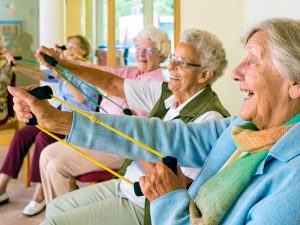June is Alzheimer’s and Brain Awareness Month
It is common knowledge that Alzheimer’s disease affects the ability to remember, but other truths about the disease are not as well known. For instance, many people are unaware that its symptoms extend further than memory loss and that early diagnosis can be beneficial.
“Everyone who has a brain is at risk of developing Alzheimer’s. Misunderstanding crucial facts about the disease can have serious consequences for people living with Alzheimer’s and their caregivers, families and friends,” said Ruth Drew, Director of Family and Information Services, Alzheimer’s Association. “During Alzheimer’s & Brain Awareness Month, we are debunking the misconceptions that keep people from seeking an Alzheimer’s diagnosis and reduce access to needed resources, clinical trials and support services.”
Greater understanding is needed given the impact of the disease. To improve understanding of the disease and to underscore the need for action, the Alzheimer’s Association is highlighting essential truths aimed at curbing common misconceptions about Alzheimer’s. These truths include:
- More than 5 million Americans are living with Alzheimer’s disease, and by 2050 that number is projected to reach as many as 16 million.
- Alzheimer’s disease is not normal aging. Alzheimer’s is a progressive disease that attacks the brain, killing nerve cells and tissue, affecting an individual’s ability to remember, think and plan. Brain changes associated with Alzheimer’s may begin 20 or more years before symptoms appear. Although age is the greatest known risk factor, Alzheimer’s is not a normal part of aging.
- Alzheimer’s is more than memory loss. Many believe the disease only manifests itself through memory loss, when it may appear through a variety of signs and symptoms. However, since Alzheimer’s affects people in different ways, each person will experience symptoms and progress through the stages of Alzheimer’s differently.
- Alzheimer’s risks are higher among women, African-Americans and Hispanics. African-Americans are about twice as likely as whites to have Alzheimer’s or another dementia. Hispanics are about one and one- half times as likely. Additionally, more than two-thirds of Americans with Alzheimer’s disease are women.
- Early detection matters. More than 5 million people are living with Alzheimer’s disease, but only about half have been diagnosed. Additionally, less than half (45 percent) of seniors diagnosed with Alzheimer’s disease or their caregivers are aware of the diagnosis. Diagnosis is often delayed due to low public awareness of the early signs of Alzheimer’s and general misperceptions about Alzheimer’s and other dementias.
“Early diagnosis allows better access to quality medical care and support services, and provides the opportunity for people with Alzheimer’s disease to participate in decisions about their care, including providing informed consent for current and future plans,” Drew said. “Knowing the diagnosis early enables the person with Alzheimer’s to get the maximum benefit from available treatments, and may also increase chances of participating in clinical drug trials that help advance research.”
- Alzheimer’s cannot be prevented, but adopting healthy habits can reduce your risk of cognitive decline and contribute to brain health. Staying mentally active, engaging in regular physical activity and eating a healthy diet benefits your body and your brain. There is also some evidence people may benefit from staying socially engaged with friends, family and the community.
- Caregiving can become anyone’s reality. “It is estimated that 250,000 children and young adults between ages eight and 18 provide help to someone with Alzheimer’s disease or another dementia. In addition, 23 percent of Alzheimer’s disease and dementia caregivers are “sandwich generation” caregivers — meaning that they care not only for an aging parent, but also for underage children.
Show Your Support During Alzheimer’s and Brain Awareness Month
During Alzheimer’s & Brain Awareness Month, the Alzheimer’s Association is encouraging everyone to show their support for people living with the disease by doing the following:
- Participate in The Longest Day® on June 20, a sunrise-to-sunset event to honor those facing Alzheimer’s disease with strength, heart and endurance.
- Join the Alzheimer’s Association in wearing purple throughout the month, especially on June 20. Share photos of yourself, family, friends and co-workers wearing the movement’s signature color via Twitter, Facebook, Instagram, etc. with the hashtag #ENDALZ.
- Visit org to learn more about Alzheimer’s disease or to find a local support group.
Parc Provence is leading the way in memory care.
Parc Provence is committed to serving our residents and supporting their families with all aspects of memory care. If you would like to learn more about our Person-centered Care and home-like community, contact us today to schedule a tour.






